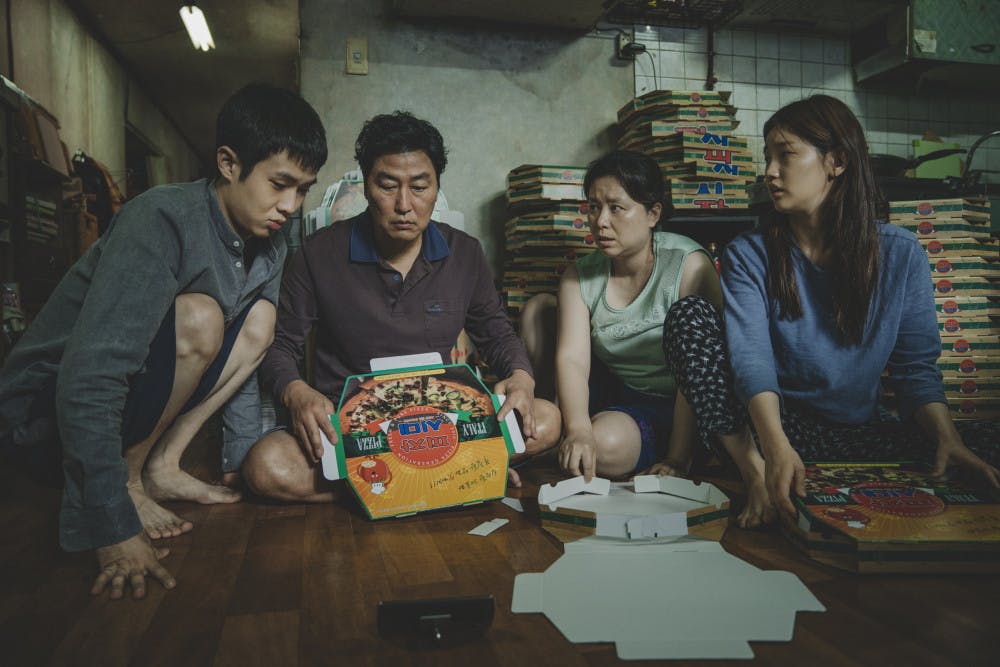“Parasite” is a masterclass example of what quality cinema can do for a viewer. It can entertain while infiltrating the deepest crevasses of their thoughts on the human condition and the world at large.
Director Bong Joon-ho has an impeccable track record with great works such as “Okja,” “Snowpiercer” and “Memories of Murder,” but he elevates his filmography to the level of De Palma or Scorsese with “Parasite.”
The Palme d’Or, the top prize at the Cannes Film Festival, was awarded to “Parasite,” making Bong the first Korean director to win the festival’s top prize while beating out opponents like Quentin Tarantino and Terrence Malick.
Kim Ki-woo, played by Woo-sik Choi, lives with his family on the edge of poverty. They fold pizza boxes for a delivery company to make some cash, steal Wi-Fi from the coffee shop nearby and leave the windows open when the neighborhood is being fumigated to deal with their own infestation. Kim Ki-woo’s life changes when a friend offers to recommend him as an English tutor for a well-off girl he’s been working with.
The young man changes his name to Kevin and begins tutoring Park Da-hye, played by Jung Ziso, who immediately falls for him, of course. But, Kevin has a much deeper plan. He’s going to get his whole family into this house. He quickly convinces his mother Yeon-kyo, played by the excellent Yeo-jeong Jo, that the son of the house needs an art tutor, which allows Kevin’s sister, Jessica, played by So-dam Park, to enter the picture. Before long, his mom and dad are in the Park house too, and it seems like everything is going perfectly for the Kim family. The Parks seem to be happy too. Then everything changes.
Bong has previously directed films about class struggle, but “Parasite” is his magnum opus examination of the structural inequity that has come to define the world. It is a tonal juggling act that first feels like a satire — a comedy of manners that bounces a group of lovable con artists off a very wealthy family of awkward eccentricities. And then Bong takes a hard right turn that asks us what we’re watching and sends us hurtling toward bloodshed.
This is a foreign film, but the story could have easily taken place in New York or Los Angeles. The direction is tightly woven and the chances of falling through the seams due to a language barrier are slim to none.
The social commentary in “Parasite” leads to chaos, but it never feels like a didactic message movie. It is somehow both joyous and depressing at the same time. “Parasite” is so perfectly calibrated that there’s joy to be had in just experiencing every confident frame of it. But that’s tempered by thinking about what Bong is unpacking and saying about society, especially with the perfect, absolutely haunting final scenes.
It’s a conversation starter in ways moviegoers only experience a few times a year and a further reminder that Bong Joon-ho is one of the best filmmakers working today. The “M-word” (masterpiece) is thrown around too often, making it difficult, as a reviewer, to describe those rare films that truly earn the title. Nevertheless, “Parasite” is a masterpiece that has the power to inspire a new generation of filmmakers.
Score: 10/10
A masterpiece of sudden and serial surprises from Korean filmmaker Bong Joon-Ho.






